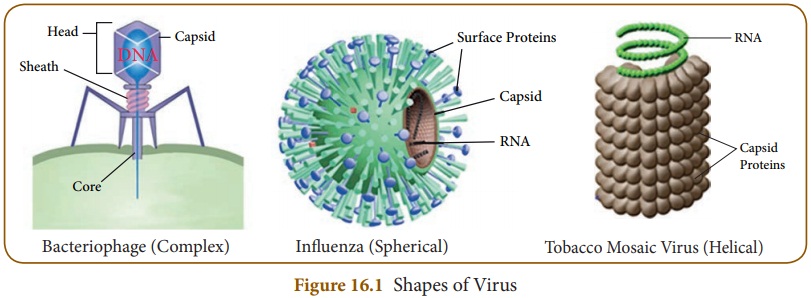Microorganisms | Chapter 16 | 8th Science - Virus | 8th Science : Chapter 16 : Microorganisms
Chapter: 8th Science : Chapter 16 : Microorganisms
Virus
Virus
A virus is a tiny particle made up
of genetic material and protein. They are intermediate between living and non
living things. Virus means ‘poison’ in Latin. Viruses are intracellular
obligatory parasites. The study of virus is called virology . Viruses are 10,000 times smaller than bacteria. Viruses
have different shapes. They can be rod shaped, spherical or of other shapes.
Structure of Virus
A virus contains a core DNA or RNA. Surrounding
that core is a protein coat. In some viruses, the protein coat is covered by an
envelope made of proteins, lipids, and carbohydrates. These envelopes have
spikes that help the virus particles attach to the host cells. Viruses cause
many diseases to plants, animals and human beings.

Characteristics of Virus
Viruses show both living and non
living characters.
Living
characters
* They respond to heat, chemicals
and radiations.
* They reproduce inside the host
cells and produce copies of themselves.
Non-living
characters
* They are inactive when present
freely in the environment.
* They can be crystallized and stored for a very long time, like other non-living things.
Related Topics